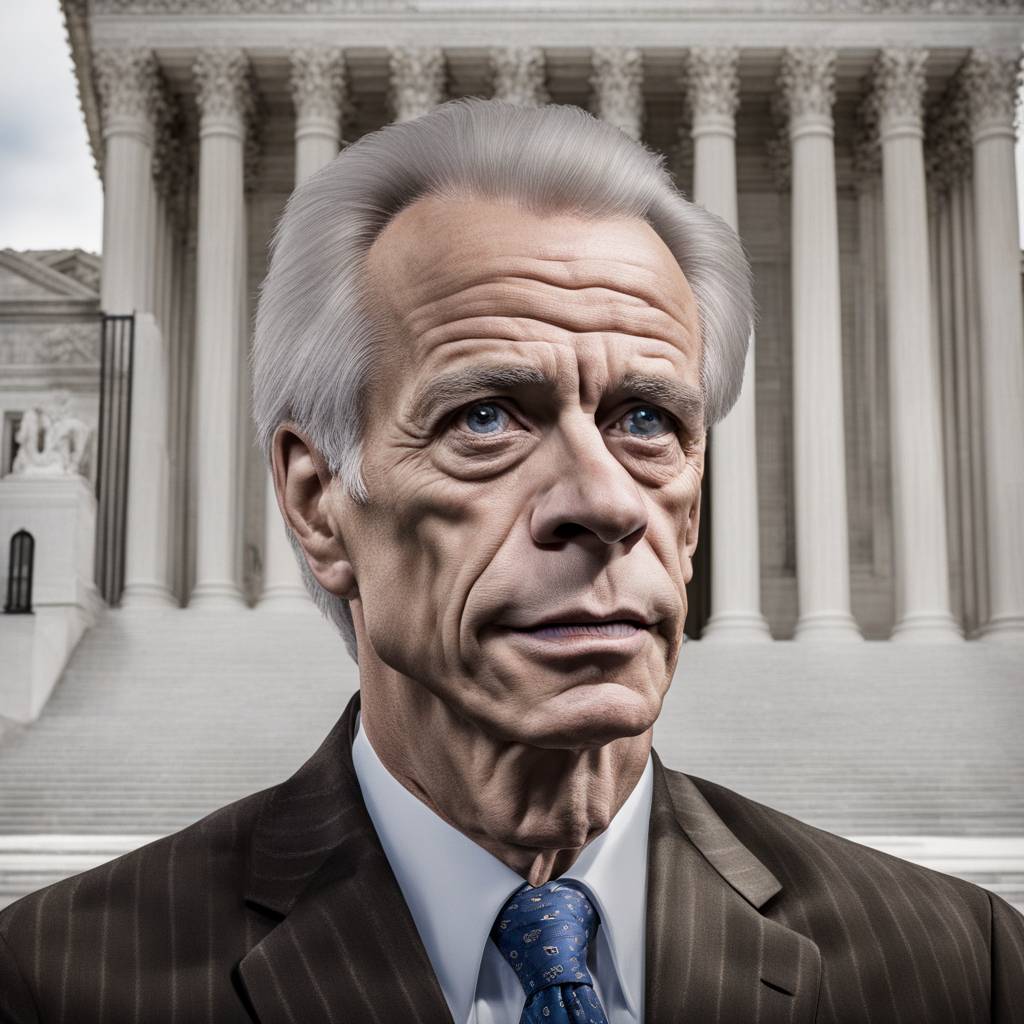Former Trump adviser Peter Navarro recently filed a request with the Supreme Court to avoid prison. Navarro had previously asked the court to let him remain free while he challenged his contempt of Congress conviction, but Chief Justice John Roberts denied that request last month. Navarro has already served 15 days of his four-month sentence.
Navarro’s attorneys have asked Justice Neil Gorsuch to review his request, a move that is rarely granted by the Supreme Court. They argue that pausing a lower court’s ruling rejecting a bid to avoid prison is justified in this case, as Navarro is not a flight risk and is raising substantial legal questions that could result in the reversal of his conviction or a new trial. However, two lower courts have previously turned down similar appeals.
Chief Justice Roberts rejected Navarro’s initial request with a brief opinion last month, stating that Navarro had forfeited his challenge to the idea that he could avoid appearing before Congress even if he was entitled to executive privilege. Roberts said he saw no basis to disagree with this determination. Navarro’s conviction stemmed from his failure to respond to congressional subpoenas for documents and testimony in the House’s investigation of the January 6, 2021, US Capitol attack.
Navarro’s request for the Supreme Court to review his case is a long-shot, as such requests are rarely granted by the high court. Despite arguing that he is not a flight risk and raising substantial legal questions, Navarro faces an uphill battle to avoid serving the remainder of his four-month sentence. His attorneys have highlighted the potential impact of his case on future legal challenges and the need for further review by the court.
If Navarro’s request is granted, he could potentially avoid serving the remainder of his prison sentence. However, given the rarity of such requests being approved by the Supreme Court, it is unlikely that Navarro will succeed in his efforts to avoid prison. The case has shed light on legal questions surrounding executive privilege and congressional testimonies, as well as the potential consequences of failing to comply with congressional subpoenas. Navarro’s conviction is the result of his refusal to respond to subpoenas in the investigation of the US Capitol attack in January 2021.


